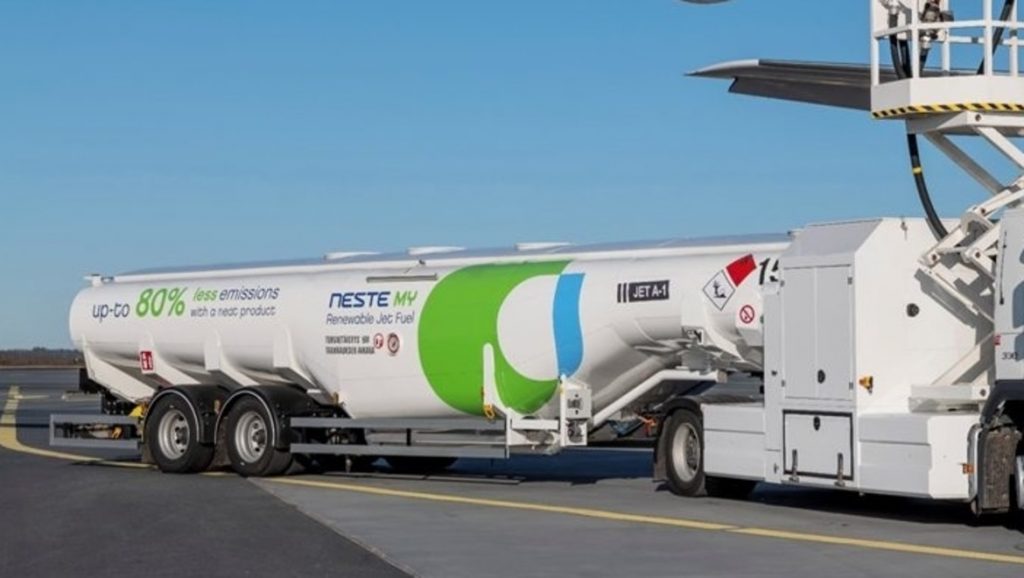
Before the COVID-19 pandemic, just 0.05 per cent of all fuel offered by jet fuel suppliers in Europe was Sustainable Aviation Fuel (SAF), according to a new study of airport fuel supply conducted by Eurocontrol.
This falls far below the current aim of seeing SAF represent 10 per cent of all fuel consumed in aviation, under a pre-pandemic European Commission initiative named ReFuelEU.
Eurocontrol noted that if jet fuel suppliers reached this percentage by 2030, “this would reduce CO2 emissions from EU departing flights by 8 per cent”.
SAF is a type of fuel derived from feedstocks such as cooking oil, solid waste from homes and businesses, waste food, and other materials. Using SAF can potentially reduce CO2 emissions by 80 per cent.
In recognition of the fact that logistically, implementing SAF into jet fuel supply is a significant challenge for airports, Eurocontrol suggested that concentrating a higher amount of SAF in a smaller number of key airports could see SAF use increase in the future.
“In the last ‘normal’ year, 2019, just 39 of 1,657 EU airports accounted for 80 per cent of the volume of conventional fuel used by aircraft departing from EU airports,” Eurocontrol said in a statement.
“Therefore, instead of distributing this SAF evenly over all 1,657 EU airports, it would be more efficient to concentrate on the fuel supply chain at these 39 airports.”
If 12.5 per cent of SAF blends were used in aircraft, it would potentially achieve the same 8 per cent reduction in CO2 emissions from flights in the EU. However, only seven of these airports have started to supply it.
Eurocontrol seeks to make aviation in Europe safe for people and the environment through delivering technical and civil-military expertise across air traffic management. Data like this is released to illustrate where the industry is at regarding key aviation issues.
However, while harnessing SAF may answer one problem, it does not answer the broader spectrum of potential ramifications. Aside from the pandemic, logistical and price issues are key areas of consideration.
While the pledge is for SAF to become the new normal in Europe, cost increases are what drive many suppliers away. SAF is currently more than twice the price of normal jet fuel.
“Some airlines might therefore be tempted to increase their use of economic tankering, which would threaten the acceleration of the decarbonisation of aviation,” said the company.
Tankering is a practice of “uplifting excess cheap fuel at one airport to avoid purchasing more expensive fuel at another”, according to reports released this year. While tankering saves costs for airlines, it increases system-wide fuel use and emissions and could reduce SAF sales consequently.
Out of the European countries listed, some have contributed significant efforts in utilising SAF far more than others. Swedavia airports was recorded to have used 0.15 per cent of SAF, and Norwegian airports at 0.50 per cent.












